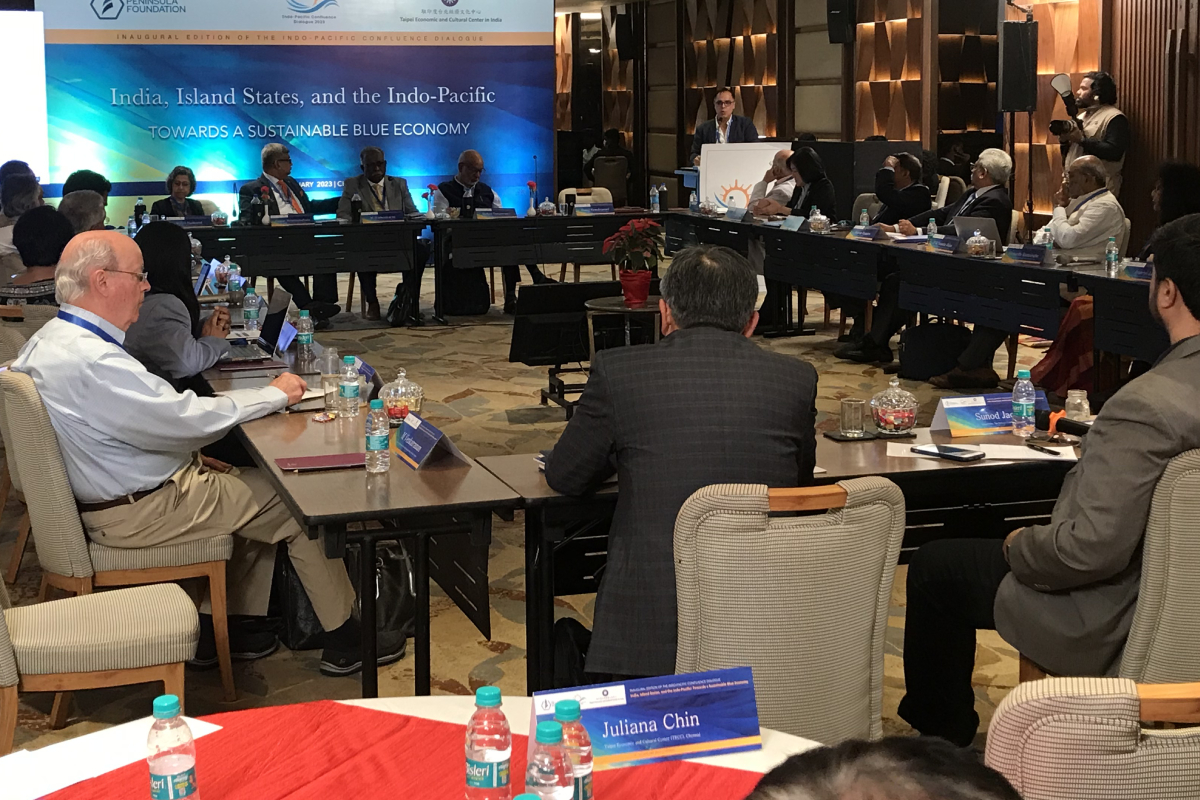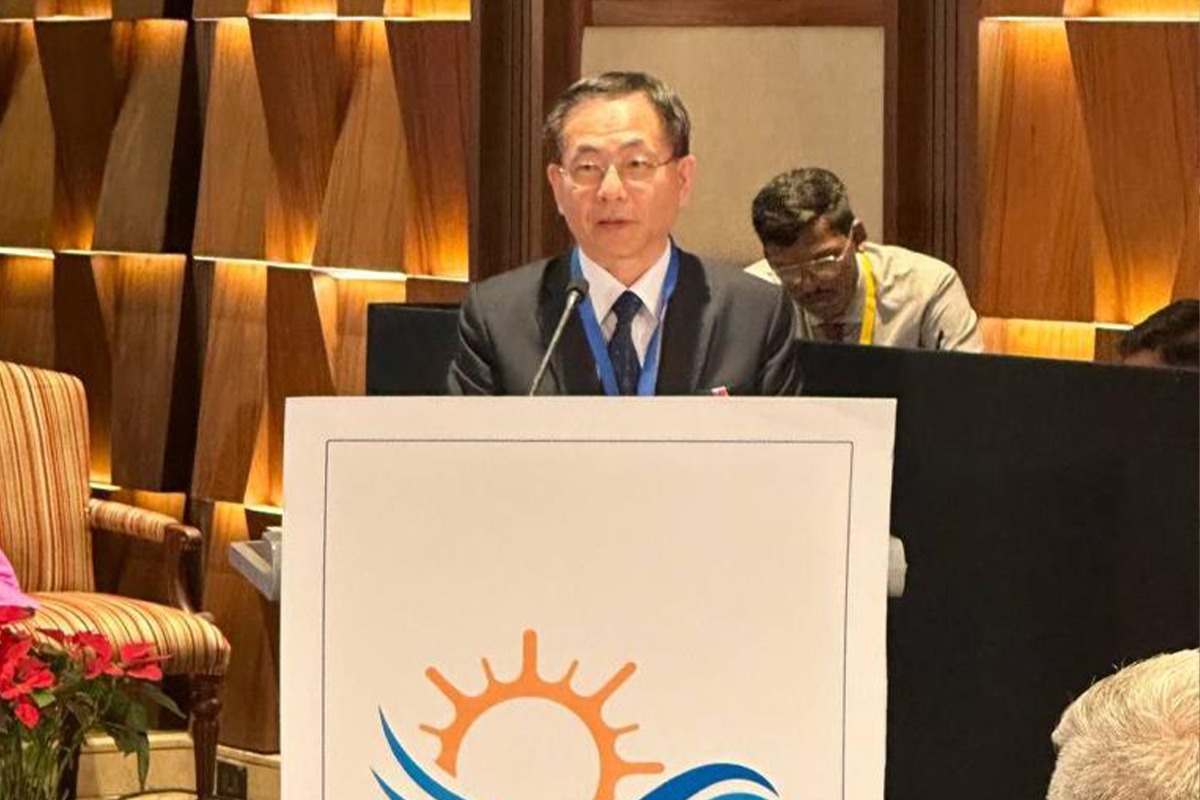

Constantly under threat by China’s provocative moves, an anxious Taipei is contemplating ways to capitalise on the Indo-Pacific doctrine politically, economically and strategically

Amid tenterhooks in relations with China, Taiwan’s fortune in the Indo-Pacific region is not only restricted to the sphere of security and counter-punching China, intelligentsia and Taiwan observers told The New Indian.
Constantly under threat by China’s provocative moves, an anxious Taipei is contemplating ways to capitalise on the Indo-Pacific doctrine politically, economically and certainly strategically.
A contingent comprising Foreign Ministry executives, technocrats, scientists and economic minds from Taiwan, Bangladesh, Maldives, Sri Lanka and the US visited Chennai last week to attend the inaugural round of the Indo-Pacific Confluence Dialogue convened by The Peninsula Foundation in association with the Taipei Economic and Cultural Centre in India.
In the inaugural session of the conclave, Taiwan’s India representative, Ambassador Bhaushan Ger, remarked that Taiwan has the ability to “shape the changing narrative in the Indo-Pacific”.

Without mentioning China’s Belt and Road Initiative, Taiwan’s representative in the conclave asserted, “Taiwan is a rules-abiding democracy that has a lot to offer and we will never entrap others in debts.”
Ger is of the faith that the Indo-Pacific is the “most culturally and economically dynamic region” in the world, but the prospects between the Indo-Pacific and Taiwan are untapped.
Known for its semiconductors, Taiwan takes pride in being a pioneer in domains like aquaculture, electronics, IT, ICT, and bicycle production. Plus, it has gained a reputation for financing businesses and projects in the neighbourhood and hatching a new breed of technocrats and engineers, picking them from the developing nations in the neighbourhood.
“I learned from Foxconn that it is in the process of recruiting 400 Indian college graduates and sending them to Taiwan for training. Upon return, their starting salary will be ₹1.2 lakh per month,” Ger said.
Speaking to The New Indian on Taiwan’s interest and relevance in the Indo-Pacific, a speaker of the Indo-Pacific Confluence Dialogue, Ambassador Tariq Karim, former Bangladesh Envoy to India, the US and Iran said, “Taiwan is a country with a booming economy on the Pacific like PRC (China), Japan, Koreas, and the Philippines and closer to the Indian Ocean than the USA, also dependent on imported raw materials and energy sources like all of the others.”

“It is hostage to the world order created after 1945 and to the whims of the UN system, particularly the UNSC (even though, ironically, it is one of the original signatories of the UN Charter that put this so-called new order in place). I believe it (Taiwan) has a legitimate interest in the Indo-Pacific as any of the other entities mentioned,” Ambassador Karim said.
In a chat with The New Indian, Namrata Hasija, a Taiwan observer, opined Taiwan’s participation in the Indo-Pacific is highly significant for geo-strategic reasons.
“Taiwan shares strategic objectives in the region and has approached the US, Japan, India and South Korea for a partnership in the Indo-Pacific strategy,” she said.
“Under its New Southbound Policy, Taiwan has engaged with most of the countries involved and has further enhanced its engagement with India and ASEAN countries,” she added.
“Taiwan’s participation is important as it controls Itu Aba (Taiping Island), the largest island in the Spratly chain (Nansha Islands), along with Pratas Island (Dongsha Island), which controls the South China Sea’s northeast exit,” Hasija said.
“Taiwan has the capacity to deploy radar and sensors to gain a more accurate situational awareness of the surrounding areas in the South China Sea,” she said.
“This makes Taiwan an important ally for not only furthering the Indo-Pacific strategy but also for monitoring China’s expansion in East Asia,” Hasija, who is also the President of the Taiwan Alumni Association in India, added further.
According to Manoj Kewalramani, China Studies fellow at Bengaluru-based Takshashila Institution, the Indo-Pacific nations have to learn from Taiwan’s domain expertise and with Taiwan, the Indo-Pacific group has a plethora of things to do.
He thinks the strategic significance of Taiwan is often ignored. India and the inmates of the Indo-Pacific should engage with Taiwan and learn from its successful experiences, suggested Kewalramani.
Speaking to The New Indian, Kewalramani opined, “Taiwan has deep expertise in many areas, including maritime governance, fisheries, disaster management and preparation for earthquakes and tsunamies. Taiwan’s experience should be shared with the Indo-Pacific countries.”
“Greater engagement with Taiwan is required for the benefit of the Indo-Pacific, and it should not be politicised,” Kewalramani told The New Indian.